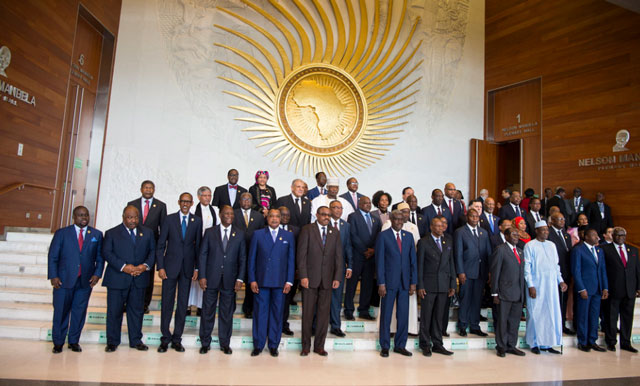
Why the claim that our continent’s problems are caused by “poor governance” is a lot of baloney
THE LAST WORD | ANDREW MWENDA | I have just re-read the 1989 report of the World Bank titled “Sub Saharan Africa: From Crisis to Sustainable Development.” It is a rich document in terms of the data it gives about Sub Saharan Africa (hereinafter called Africa).
It is also in this report that the World Bank introduced (for the first time) the argument that one of the powerful causes of Africa’s poor economic performance was “governance.” The report itself did use the expression “good governance”.
That was in the Foreword by the World Bank president. However, in subsequent documents, the World Bank began to use the expression “good governance”. Since then, it has entered the modern political lexicon as almost the singular explanation for everything that has gone wrong with Africa.
Everywhere you turn – African elites, academics, journalists, politicians, and “experts,” – all attribute all failure in Africa to a lack of “good governance.” While the Bank presented this as one among other causes of Africa’s decline, over time it has been transformed into “the only” explanation.
The 322 pages report gives a grim but insightful account of where Africa had sunk. It says our region enjoyed a brief period of economic growth in the 1960s, entered a period of stagnation in the 1970s and began rapid economic decline in the 1980s.
By 1987 with 450 million people (double the population at independence) Africa was as poor as (or even worse than) the early 1960s.
The report further says that the region’s Gross Domestic Product (GDP) of $136 billion was almost equal to that of tiny Belgium with only 10 million people.
To maintain investment amidst declining growth, governments in Africa had borrowed heavily from abroad. By 1988 foreign debt was 100% of the region’s GDP. Consequently, debt service obligations were 47% of total foreign exchange earnings and only half were being paid.
To contain this problem, the IMF and World Bank had negotiated over 100 debt-rescheduling yet arrears were accumulating.
Looking back 30 years later, one can say Africa made a turn for the better. Its GDP has grown from $136 billion (or $276 billion in 2018 dollars) in 1988 to $1.645 trillion today, the population from 450 million to 1.014 billion today.
Therefore, even after adjusting for inflation, our region’s GDP has expanded six fold thereby tripling per capita income. Better still, only four out of the region’s 46 countries have a debt to GDP ratio above 100%, the average is 50%.
Of course Africa’s economic performance is not as dramatic as what we have seen in China but it is fairly good nonetheless. Even when we use Belgium as our reference point (as the World Bank did), there is some smell of good air compared to 1988.
Belgium’s population has grown from 10 million people in 1988 to 11.4 million people in 2018 while its GDP has less than doubled from $276 to $500 billion today and so has been its per capita income which has grown from $28,000 to $48,000.
It seems Africa has since the gloomy 1980s taken a turn for the better. But what explains the region’s change of course from economic decline to sustained growth? The IMF and World Bank would say that “good governance” (the quality of institutions) has significantly improved and that economic policies are better.
Governments in Africa have since began to respect central bank independence, introduced more democratic governance etc. Countries have since reformed the civil service, privatised public enterprises, liberalised the economies, controlled inflation, etc.
This is only partly true but I don’t think it has been fundamental. I am more inclined to believe that governance has improved due to sustained economic growth, not vice versa. Why? Countries that have exhibited rapid growth over the years have widely differing governance systems.
Some are seen as being fairly democratic (Ghana, Zambia, Senegal), others are categorised authoritarian (Ethiopia, Rwanda, Equatorial Guinea, Angola) while many are referred to as highbreed (Uganda, Tanzania).
Some are civilian others are military; some have long serving leaders others short lived ones. Some have withdrawn the state from business entirely (Uganda, Zambia,) while others have retained a strong role (Kenya, Rwanda and Ethiopia).
Some have accepted central bank independence while others have not. However, regardless of regime type, the quality of institutions and the mix of policies, the region has been de-industrialising i.e. ratio of manufacturing to GDP has remained stagnant or even declined.
This means there has been little or no structural transformation i.e. a shift in most people’s livelihoods from depending on agriculture to industry and services. Growth has been sustained by export of primary commodities like minerals and agricultural produce.
I am inclined to believe that more than improved governance, the biggest driver of growth in Africa over the last 30 years has the rapid growth of China.
This has increased the demand for the raw materials Africa produces, thereby increasing their value on the international market. Indeed the recent decline in growth in China has led to a significant decline in the rate of growth of Africa.
In the 1960s, Africa grew rapidly because the economies of Western Europe were growing rapidly and demanding a lot of our raw materials for their reconstruction after World War Two.
As the West entered a period of slow growth precipitated by the oil shocks of 1973 and 1979, Africa’s economies also began to decline. This led to shrinking state revenues, which led to poor public sector wages. I believe this is what worsened governance in Africa.
As already noted, Africa’s growth is not driven by innovation but China buying our raw materials. Our economies continue to depend on nature’s (or God’s) bounty for export revenues. Economic history shows that it does not really matter how a country is governed: whether it is a democracy or a dictatorship, has an honest or corrupt government.
For as long as it has appreciating terms of trade (what it sells abroad brings in more money than what it buys from there), such a country will prosper.
This explains why Equatorial Guinea with vast oil revenues but horrible governance has had the fastest growing economy in the world over the last 30 years. Today it has one of the highest per capita incomes in the world – $35,000 at purchasing power parity.
The debate on the economic development of Africa has been focused on peripheral issues (“good governance”, corruption, etc.). This has obscured fundamental ones like the dominance of multi national capital in our nations and poor terms of trade.
*****
amwenda@independent.co.ug
 The Independent Uganda: You get the Truth we Pay the Price
The Independent Uganda: You get the Truth we Pay the Price


